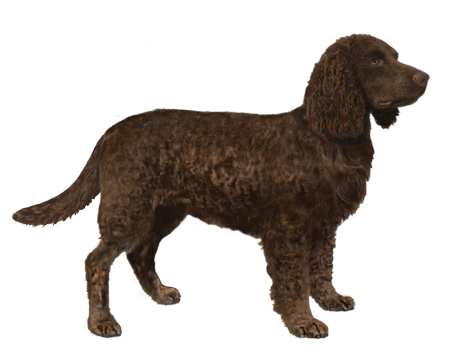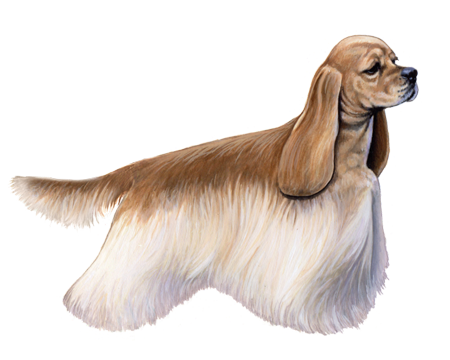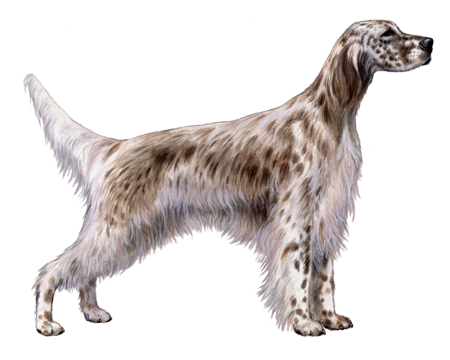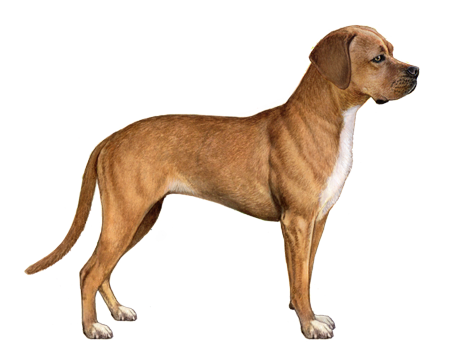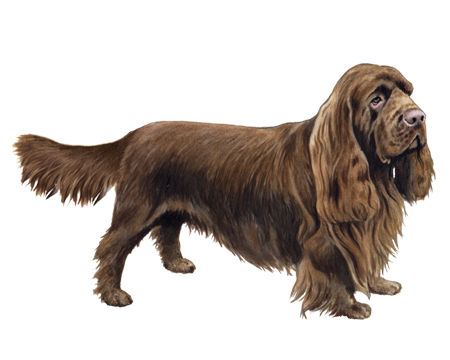
Wirehaired Vizsla
The Wirehaired Vizsla is an energetic, alert, and intelligent breed. Both a versatile hunting companion and an active family dog, the Wirehaired Vizsla is always up for adventure.
Interested in discovering if your dog is a Wirehaired Vizsla?
Check out Wisdom Panel's DNA tests.

Wirehaired Vizsla Traits
General Appearance
Wirehaired Vizslas are medium-sized, lean hunting dogs with dense, wiry coats and adorable beards and eyebrows.
Coat and Coloring
The Wirehaired Vizsla's wiry outer coat and dense undercoat protect against weather and injury. A shorter, softer, and thinner coat covers the lower legs and underside of the chest and belly.
Wirehaired Vizslas can be a variety of golden and red shades ranging from a light, sandy yellow to a deep red. A small amount of white on the chest is possible.
Distinctive Physical Traits
Wirehaired Vizslas are best known for their facial furnishings. Pronounced eyebrows and a strong beard give these pups their distinguished (and quite handsome) appearance. Wirehaired Vizslas are also self-colored, meaning their eyes, lips, nose, and toenails blend with the color of their coats.
Wirehaired Vizsla Temperament
The loyal Wirehaired Vizsla's high intelligence and energy make it a good breed for active families. But these dogs are excellent hunting companions, too, thanks to their innate pointing and retrieving skills.
Wirehaired Vizslas are typically calm house dogs (provided they get enough exercise). But when they're in play mode, they're upbeat and exuberant.
Due to their strong hunting instincts, Wirehaired Vizslas may chase or hunt wildlife. A fully-fenced yard will help keep other critters safe from these eager canines. And though they're outgoing around people they know, Wirehaired Vizslas may be shy around strangers.


Wirehaired Vizsla History
The Wirehaired Vizsla originated in Hungary in the 1930s. Hunters and falconers wanted a breed with all of the favorable characteristics of the Vizsla—plus a sturdier build and wiry coat that would protect it from northern Hungary's extreme cold and harsh landscape.
So, they crossed the Vizsla with the German Wirehaired Pointer. Other breeds—such as the Wirehaired Pointing Griffon and Irish Setter—might have been involved, as well. But almost all breeding records were lost during World War II, so no one knows for sure.
Wirehaired Vizslas came to the United States in 1970, and the AKC recognized the breed in 2014.
Wirehaired Vizsla Care
Nutrition
Wirehaired Vizslas require a high-quality, age-appropriate dog food—whether it's commercially manufactured or homemade (with a veterinarian's supervision and approval). These pups are very food-oriented and will happily accept (or seek out) a snack whenever they can. So, keep an eye on their food intake and weight. And don't forget to account for treats in their overall calorie intake. Treats should make up no more than 10% of a dog's calories.
Grooming
Keeping your Wirehaired Vizsla's coat looking its best is a relatively easy task. A quick wipedown with a wet cloth and the occasional bath are typically sufficient to keep this breed's wiry coat clean. When your Wirehaired Vizsla is shedding their undercoat, expedite the process with a grooming mitt or shedding knife to reduce the amount of hair that drops around your home.
Be sure to inspect your Wirehaired Vizsla's nails for splits or cracks and trim them regularly. Nails that get too long can cause discomfort and lead to problems walking.
Finally, maintaining good dental hygiene is essential for any dog's long-term health. In addition to scheduling professional dental cleanings, establish an at-home care routine that includes regular teeth brushing.
Exercise
True to their sporting heritage, Wirehaired Vizslas need a lot of daily exercise. Long walks, hikes, or backyard games of fetch will give them opportunities to burn off energy.
Other good options include flyball, hunt-and-field trials, agility, tracking, competitive obedience, and other dog sports. These events provide not only great exercise but also mental stimulation.
Most Wirehaired Vizslas enjoy a good swim, as well. And if you're looking for a jogging buddy, this may be the breed for you.
Training
Wirehaired Vizslas are intelligent, which means they get bored easily. So, aim to keep training sessions short and fun to hold your pup's attention.
A sensitive breed, the Wirehaired Vizsla responds best to consistent, structured training and a gentle but firm tone. To help them grow into a well-mannered adult dog, socialize your Wirehaired Vizsla early.
Wirehaired Vizslas are very food-motivated. So, using their favorite treats as rewards during training sessions is smart. Just remember to include calories from these treats when considering their daily food needs.

Wirehaired Vizsla Genetic Health Conditions
-
Cerebellar Cortical Degeneration
Cerebellar cortical degeneration (CDD) is a disease causing incoordination and impaired balance.
-
Exercise-Induced Collapse
Exercise-Induced Collapse (EIC) is a neuromuscular disorder which can cause incoordination and weakness, resulting in collapse, after periods of strenuous exercise.
-
Hyperuricosuria
Hyperuricosuria (HUU) is a condition that predisposes affected dogs to the formation of urinary stones, such as kidney or bladder stones.
Knowing if your Wirehaired Vizsla is a carrier or at-risk for these conditions can help you and your veterinarian plan for your pup’s lifelong care. With Wisdom Panel™ Premium, you can get results for over 200 genetic health tests.
Breed Group
Sporting
The sporting group breeds are incredibly diverse in personality and appearance, but can be characterized as very sturdy. They were developed to work closely with people and in general have a very responsive nature and high intelligence.




